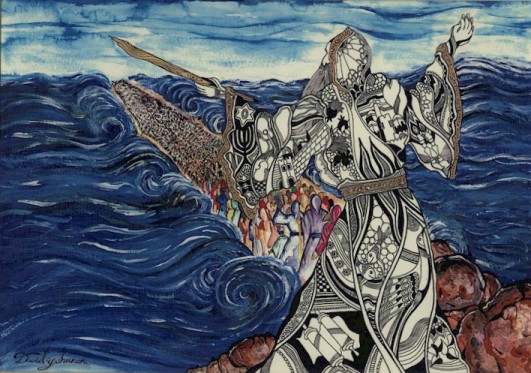
As they faced the Sea, with the army at their backs, they weren’t totally sure what to do until one man began to walk into the sea. Nachshon was Aaron’s brother-in-law, two degrees of separation in Moses’s family. The rabbis say he was a very noble, faithful man, the embodiment of a quiet and supportive leader. Moses stood before the people, waiting for a solution from God, and always had a sort of top down approach to his leadership, even when he does eventually learn to delegate and ask for help. Nachshon just walked right in the water, ready to swim if necessary. He saw the problem ahead of him and decided to just plunge right in anyway. He walked in past his knees, past his chest, all the way up to his nose, almost to the point where he wouldn't be able to breathe if he kept walking. Only then, once he had shown his commitment and people behind him started to follow, did the Sea split and allow the Israelites to walk across to safety on dry land.
There are lots of ways to be a leader and to problem solve. Not all people like a lot of attention, like to speak publicly, or are comfortable telling people what to do. That doesn't mean quiet people, introverts, out-of -the-box thinkers, and others can't also affect great change. One of our earliest rabbis, Shammai, was known to say, “Say little, do much, and greet every person with a smile.” Sometimes it is important to speak out, and there will be the Moseses of the world to take the lead when they are needed. And sometimes it is important to just start doing, and there must also be Nachshons in the world to be willing to take the plunge without needing to consult others.
Whichever type of leader you are, I pray that you find your own strength, your resolve, and your style, to make a difference in this world and know your own importance. May you lead with compassion and resilience, and may you help bring us all closer to peace. Amen and Shabbat Shalom.

No comments:
Post a Comment